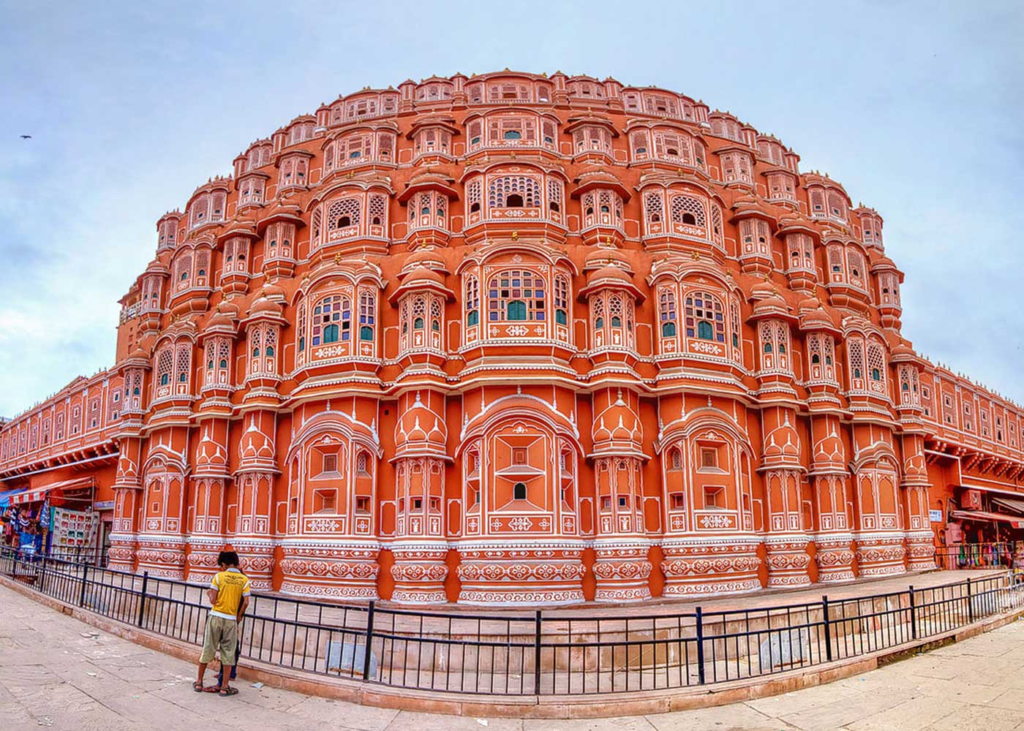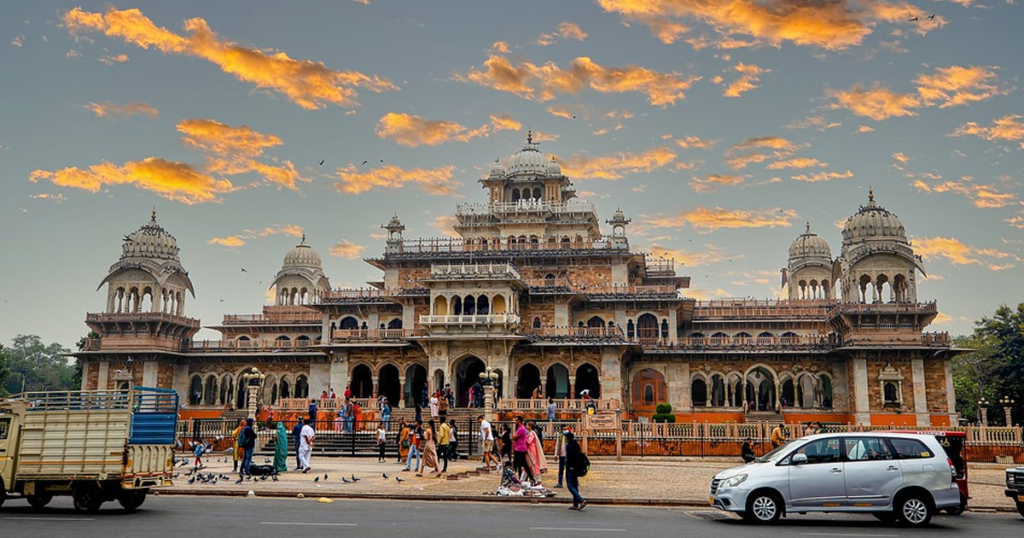
Introduction
Embarking on an educational trip to Jaipur, also known as the Pink City, is a unique opportunity for students to combine learning with exploration. This vibrant city, steeped in history and culture, offers a plethora of educational experiences that go beyond textbooks. In this article, we will delve into the various aspects of planning and making the most of a Jaipur educational trip.
Table of Contents
- Understanding the Significance of Jaipur
- A Glimpse into Jaipur’s History
- Architectural Marvels: Palaces and Forts
- Planning Your Educational Itinerary
- Selecting Historical Sites and Museums
- Arranging Guided Tours and Workshops
- Immersive Learning Opportunities
- Interacting with Artisans and Craftsmen
- Experiencing Rajasthani Cuisine and Culture
- Exploring the Scientific Heritage
- Visit to Jantar Mantar: The Astronomical Observatory
- Unearthing Ancient Scientific Advancements
- Environmental Awareness in Jaipur
- Visiting Birla Mandir: An Architectural Marvel
- Understanding Sustainability Efforts
- Engaging in Cultural Exchange
- Participating in Folk Performances and Workshops
- Experiencing Local Festivals and Traditions
- Reflecting on the Trip: Post-Visit Discussions and Assignments
- Group Reflection Sessions
- Individual Assignments and Projects
- Ensuring Safety and Comfort
- Accommodation and Transportation
- Health and Safety Guidelines
- Budgeting and Fundraising Tips
- Cost-Effective Planning Strategies
- Fundraising Ideas for the Trip
- Making Lasting Memories: Photography and Journaling
- Capturing the Essence of Jaipur
- Journaling for Reflection and Documentation
- Building Team Bonds: Group Activities and Games
- Team-Building Exercises
- Games to Foster Camaraderie
- Navigating Language Barriers
- Basic Phrases for Communication
- Utilizing Translation Tools
- Adapting to Local Customs and Etiquette
- Respecting Traditions and Practices
- Dress Code and Behavior Guidelines
- Sustainability and Responsible Tourism
- Reducing Environmental Impact
- Supporting Local Artisans and Businesses
- Conclusion: A Journey of Learning and Discovery
Understanding the Significance of Jaipur
A Glimpse into Jaipur’s History

Jaipur, founded in 1727 by Maharaja Sawai Jai Singh II, is a city steeped in history. Its rich cultural heritage is reflected in its architecture, art, and traditions. The city gets its nickname, the Pink City, from the distinct pink hue of the buildings in the old part of town.
Architectural Marvels: Palaces and Forts

Jaipur is home to some of the most magnificent palaces and forts in India. The Amer Fort, Hawa Mahal, and City Palace are architectural marvels that offer a glimpse into the opulence of Rajput royalty.
Planning Your Educational Itinerary
Selecting Historical Sites and Museums
When planning your educational trip, carefully select the historical sites and museums that align with your curriculum. The Albert Hall Museum and the Jaipur Wax Museum are must-visit places for a comprehensive historical perspective.
Arranging Guided Tours and Workshops
To enhance the learning experience, consider arranging guided tours and workshops. Knowledgeable guides can provide valuable insights and interactive workshops can offer hands-on learning opportunities.
Immersive Learning Opportunities
Interacting with Artisans and Craftsmen
One of the unique aspects of Jaipur is its thriving artisan community. Students have the opportunity to interact with skilled craftsmen and witness the intricate process of crafting traditional Rajasthani art and handicrafts. This hands-on experience not only fosters an appreciation for craftsmanship but also provides insight into the economic significance of these trades.
Experiencing Rajasthani Cuisine and Culture
Exploring the local cuisine is an essential part of any educational trip. Jaipur offers a diverse range of culinary experiences, from delectable street food to lavish traditional Rajasthani feasts. Students can participate in cooking classes, gaining an understanding of the ingredients and techniques that define Rajasthani cuisine. This cultural immersion through food is a memorable way to connect with the heritage of the region.
Exploring the Scientific Heritage
Visit to Jantar Mantar: The Astronomical Observatory
Jantar Mantar, a UNESCO World Heritage Site, is an ancient observatory built by Maharaja Sawai Jai Singh II. It showcases remarkable astronomical instruments that were ahead of their time. A guided tour here provides a fascinating insight into the scientific prowess of ancient India and sparks curiosity about astronomy and mathematics.
Unearthing Ancient Scientific Advancements
Beyond Jantar Mantar, Jaipur holds a treasure trove of scientific history. Students can explore ancient manuscripts and artifacts that reveal the sophisticated knowledge of mathematics, astronomy, and architecture that flourished in this region centuries ago. This exploration serves as a powerful reminder of the continuous pursuit of knowledge throughout human history.
Environmental Awareness in Jaipur
Visiting Birla Mandir: An Architectural Marvel
Birla Mandir, also known as the Laxmi Narayan Temple, is a testament to the blend of modernity and spirituality. Its stunning white marble architecture and intricate carvings inspire awe. Beyond its aesthetic appeal, the temple also emphasizes environmental consciousness, incorporating various eco-friendly practices in its construction and maintenance.
Understanding Sustainability Efforts
While in Jaipur, students have the opportunity to learn about ongoing sustainability efforts in the city. From community initiatives to conservation projects, witnessing these endeavors firsthand instills a sense of responsibility towards environmental stewardship.
Engaging in Cultural Exchange
Participating in Folk Performances and Workshops
Jaipur’s cultural vibrancy comes to life through its folk performances. Students can participate in workshops that introduce them to traditional dance forms like Kathak and vibrant music genres like folk and classical. This interactive experience fosters an appreciation for the artistic expressions that have been passed down through generations.
Experiencing Local Festivals and Traditions
Depending on the timing of the trip, students may have the opportunity to witness or even participate in local festivals. Events like Holi, Diwali, and Teej offer a firsthand experience of the rich traditions and celebrations that define the cultural tapestry of Jaipur.
Reflecting on the Trip: Post-Visit Discussions and Assignments
Group Reflection Sessions
After each day of exploration, organizing group reflection sessions provides students with an opportunity to share their insights and observations. These sessions encourage critical thinking and help solidify the educational value of the trip.
Individual Assignments and Projects
To further integrate the experience, assign projects that require students to delve deeper into specific aspects of their trip. Whether it’s a research paper, a creative project, or a presentation, these assignments allow students to apply what they’ve learned in a meaningful way.
Ensuring Safety and Comfort
Accommodation and Transportation
Choosing the right accommodation and transportation options is crucial for a successful educational trip. Opt for accommodations that are centrally located, safe, and provide easy access to the planned activities. Additionally, arrange reliable transportation services to ensure seamless movement between destinations.
Health and Safety Guidelines
Prioritize the well-being of students by adhering to health and safety guidelines. Provide them with essential information about local healthcare facilities, emergency contacts, and any necessary vaccinations or precautions. Additionally, ensure that all participants are aware of basic safety protocols to follow throughout the trip.
Budgeting and Fundraising Tips
Cost-Effective Planning Strategies
Budgeting plays a significant role in the success of an educational trip. Explore cost-effective options for accommodation, transportation, and meals without compromising on quality. Consider group discounts, early booking advantages, and package deals to maximize savings.
Fundraising Ideas for the Trip
To alleviate financial burdens on students, consider organizing fundraising activities. These can range from bake sales and car washes to talent shows and online crowdfunding campaigns. Involving students in fundraising not only helps cover expenses but also fosters a sense of ownership and teamwork.
Making Lasting Memories: Photography and Journaling
Capturing the Essence of Jaipur
Encourage students to document their experiences through photography. Provide tips on framing, lighting, and composition to help them capture the beauty and essence of Jaipur. These visual memories will serve as a powerful reminder of their educational journey.
Journaling for Reflection and Documentation
In addition to photography, encourage students to maintain journals throughout the trip. Prompt them to reflect on their observations, insights, and emotions. This practice not only enhances their writing skills but also provides a tangible record of their learning experiences.
Building Team Bonds: Group Activities and Games
Team-Building Exercises
Incorporate team-building activities into the itinerary to strengthen bonds among students. These activities can range from trust-building exercises to problem-solving challenges. Fostering a sense of camaraderie enhances the overall educational experience.
Games to Foster Camaraderie
Intersperse fun and interactive games throughout the trip to promote a positive group dynamic. Whether it’s a scavenger hunt, a trivia quiz, or team-building games, these activities add an element of enjoyment and create lasting memories.
Sustainability and Responsible Tourism
Reducing Environmental Impact
Highlight the significance of responsible tourism practices. Encourage students to minimize waste, conserve resources, and support eco-friendly initiatives. By demonstrating a commitment to environmental stewardship, students contribute to the preservation of Jaipur’s natural and cultural heritage.
Supporting Local Artisans and Businesses
Promote the importance of ethical consumerism by encouraging students to purchase locally-made products and support small businesses. This not only fosters economic sustainability but also provides students with authentic souvenirs that hold cultural significance.
Conclusion: A Journey of Learning and Discovery
A Jaipur educational trip transcends the boundaries of traditional classroom learning. It offers students a dynamic and immersive educational experience, combining history, culture, and hands-on learning. Through interactions with local communities, exploration of architectural marvels, and engagement with scientific heritage, students gain a deeper understanding of the world around them.
This journey also instills valuable life skills, such as adaptability, teamwork, and cultural awareness. As students return home, they carry with them not only memories and knowledge but also a broader perspective that will shape their future endeavors.



